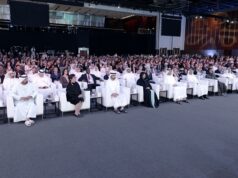Lagos, Oct. 28, 2025 (NAN) Manufacturers Association of Nigeria (MAN) saw an increase in confidence among its CEO members in the third quarter of 2025, rising by 0.4 per cent to 50.7 from 50.3 in the previous quarter.
The President of MAN, Mr Francis Meshioye, revealed this on Tuesday in Lagos during a news conference detailing the MAN Chief Executive Officers’ Confidence Index (MCCI) and report from the 2025 MAN Think Tank Session.
The News Agency of Nigeria (NAN) reports that MCCI is a statistical indicator that measures the manufacturing sector’s pulse.
It does it by sampling the real-time perception of 500 CEOs of MAN member-companies across 10 sectoral groups and 16 industrial zones.
The index essentially gauges manufacturers’ perception using a set of diffusion factors, macroeconomic conditions and business operating environment indicators.
Meshioye said that over the years, manufacturing performance had been largely oscillatory due to some binding constraints.
“The association has also continually intensified advocacy for a friendlier operating environment.
“While there is an uptick in CEOs’ confidence, real output growth dropped from 1.69 per cent to 1.6 per cent in Q2.
“This contributes a modest 7.81 per cent to Gross Domestic Product (GDP), down from 9.62 per cent,” he said.
The MAN president said that though, lower alternative energy cost of N676.6 billion and raw material import of N1.72 trillion in the first half of 2025 remained a heavy burden.
He added that high average lending rates of 36.6 per cent, reduction in credit access to N7.72 trillion and rising unsold inventories of N1.04 trillion continued to limit the sector’s performance.
“Overall, the sector’s fragile recovery calls for urgent policy actions to cut energy costs, strengthen foreign exchange liquidity and expand affordable credit access to accelerate growth.
“It is noteworthy to state that the manufacturing sector is gradually inching toward the path of full recovery.
“However, government, as a matter of urgency, needs to review reforms implemented so far to ascertain lapses, internal bottlenecks and drawbacks and with a view to addressing them,” he said.
MAN Director-General, Mr Segun Ajayi-Kadir, said the 0.4 per cent rise, though marginal, was significant, as it marked a second consecutive quarterly increase, reflecting improving manufacturer confidence.
He said the breakdown of the MCCI indices showed that both the current business condition and current employment condition recorded slight upticks of 0.6 and 0.3 per cent respectively.
Ajayi-Kadri, however, noted that the current production condition declined marginally by 0.3 points.
This, he attributed, to the industrial disputes in the oil and gas sector, which disrupted gas supply, raised energy costs and constrained manufacturing output.
He said that the projected indices for the next quarter all remained above 50 per cent, showing sustained optimism among manufacturers.
“This optimism is buoyed, not only by recent policy adjustments, such as the 50-basis point cut in the benchmark interest rate.
“Also, the suspension of the four per cent Free-on-Board levy and the approval of tax incentives for local sourcing of raw materials.
“However, it is by strong expectations that the forthcoming National Industrial Policy will be highly private sector-driven.
“Manufacturers are confident that a policy framework anchored on private sector participation will catalyse industrial competitiveness, stimulate productive investment and open new frontiers for growth,” he said.
The Director, Research and Economic Policy Division, MAN, Dr Oluwasegun Osidipe, outlined eight recommendations to put the sector back on the path of recovery.
He urged the Federal Government to appoint economic/commercial attachés in countries with significant Nigerian trade and investment interests to strengthen market intelligence and export promotion.
Osidipe also urged manufacturers to advocate for specialised financing mechanisms for manufacturing, including a manufacturer’s bank offering long-term concessionary credit.
He urged the Federal Executive Council to approve the implementation of the Nigeria Industrial Policy, while manufacturers utilise the MEAL dashboard, sector KPIs and structured feedback loops to track reform performance.
“MAN should be accorded a preeminent role in national power policy and granted membership of Nigeria Electricity and Regulatory Commission.
“Government should establish a dedicated joint security task force to safeguard industrial zones nationwide.
“Government should also mainstream the reports of MAN summit, blueprint 2.0 and 2025 Think Tank into the Nigeria Industrial Policy and adopted as working documents for the Industrial Revolution Work Group,” he said. (NAN)









